Understanding times tables Math Worksheets for Ages 5-8
6 filtered results
-
From - To
Explore our engaging "Understanding Times Tables Math Worksheets" designed specifically for children aged 5-8. These worksheets provide a fun and interactive way to introduce multiplication concepts, helping young learners build a solid foundation in math. With a variety of exercises, including visual aids and practical examples, these resources aim to enhance understanding and boost confidence in times tables. Perfect for use at home or in the classroom, our worksheets cater to different learning styles, ensuring each child can grasp multiplication at their own pace. Start your child’s mathematical journey today with our vibrant and effective times tables worksheets!
Understanding times tables is crucial for children aged 5-8, as it lays the foundational skills for mathematics that they will build upon throughout their educational journey. Mastery of times tables enhances not just calculation skills but also fosters confidence in problem-solving. When students grasp these basic multiplication concepts, they can tackle more complex problems in both math and real-life scenarios, such as sharing items, calculating costs, or figuring out time.
For parents and teachers, recognizing the importance of this skill helps create a supportive learning environment. Engaging in playful, interactive methods—like games and songs—can excite children about math, making learning enjoyable rather than intimidating. This early foundation will mitigate math anxiety and cultivate a positive attitude towards the subject.
Additionally, understanding times tables promotes critical thinking, as students learn to identify patterns and relationships between numbers. This skill is integral not only for future math success but also for skills applicable in science, technology, engineering, and even everyday life. By encouraging children to master their times tables, parents and educators actively contribute to their holistic growth in logic, reasoning, and confidence—an investment in their academic future.
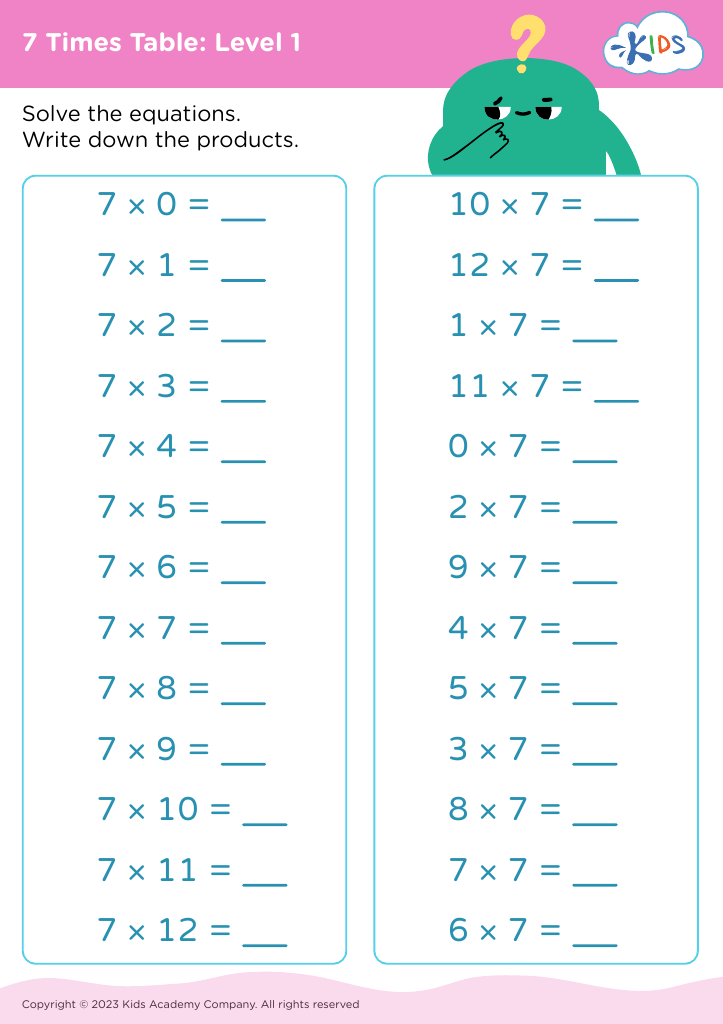
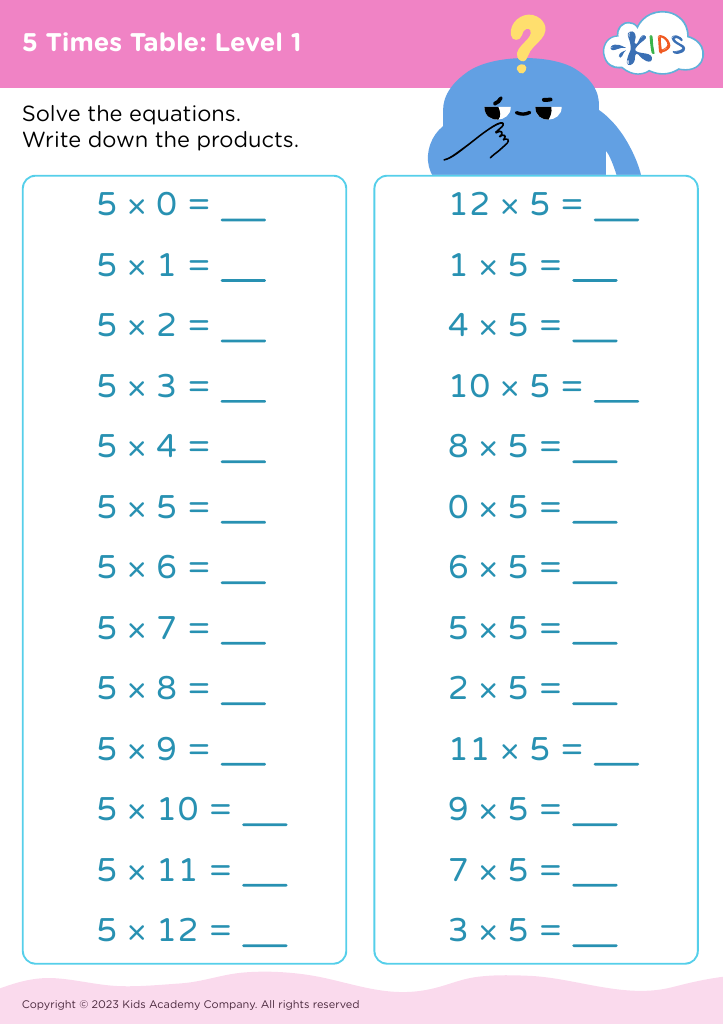
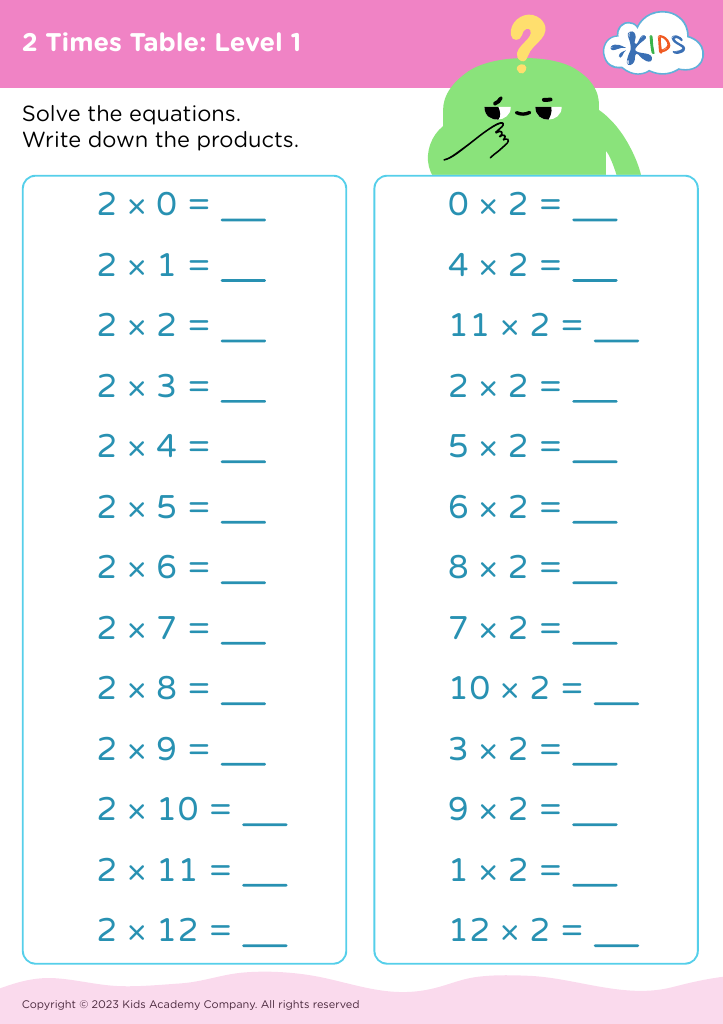
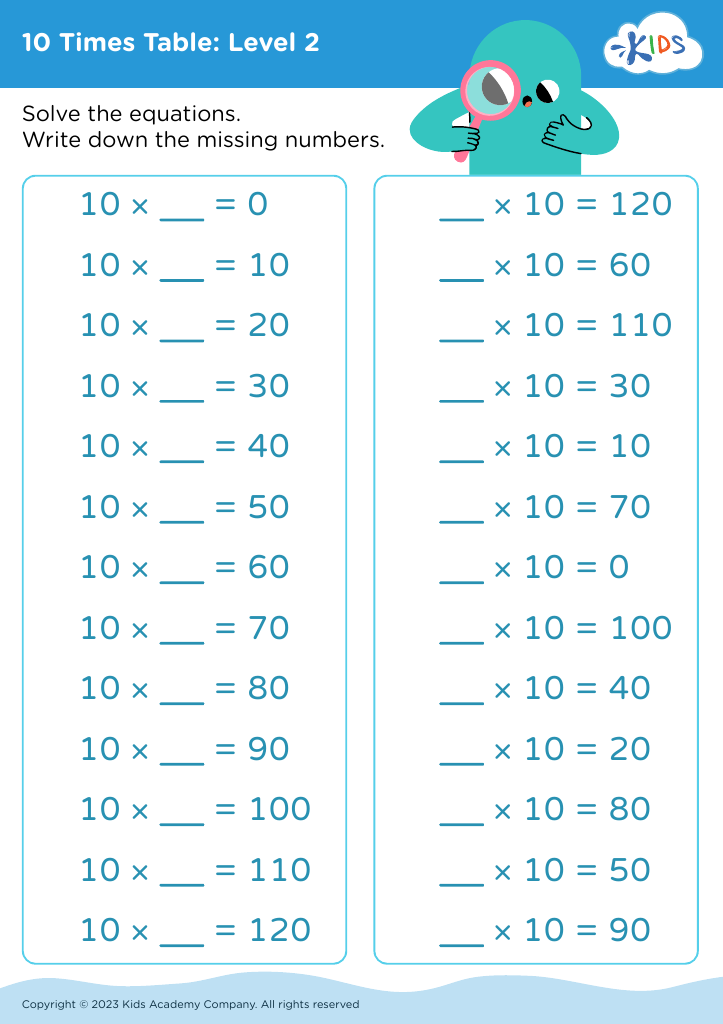
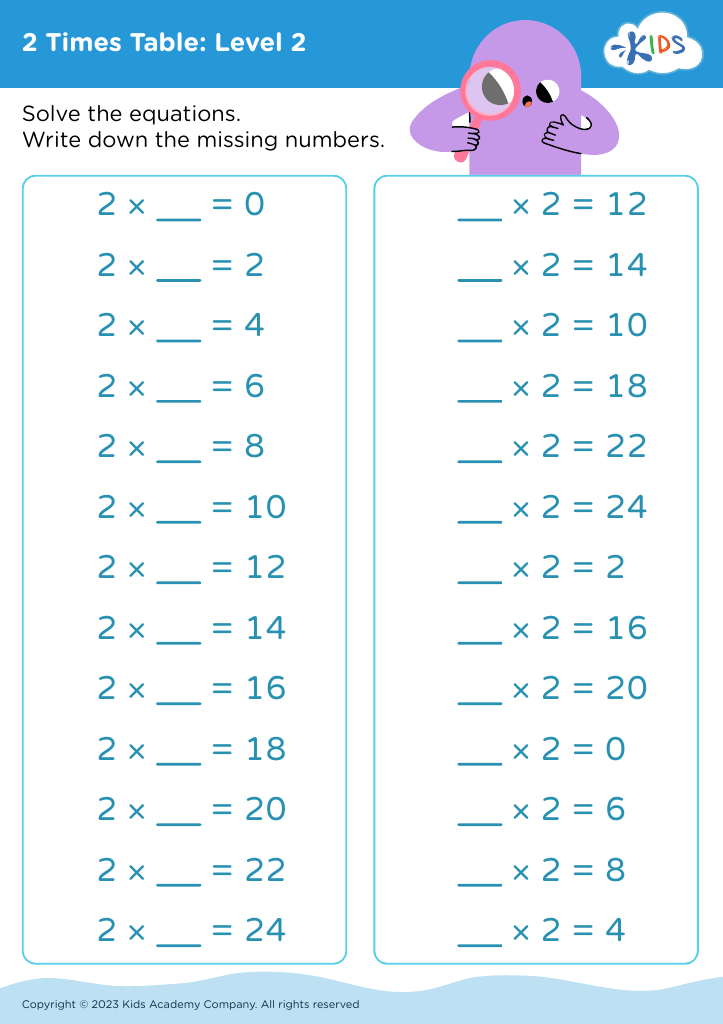

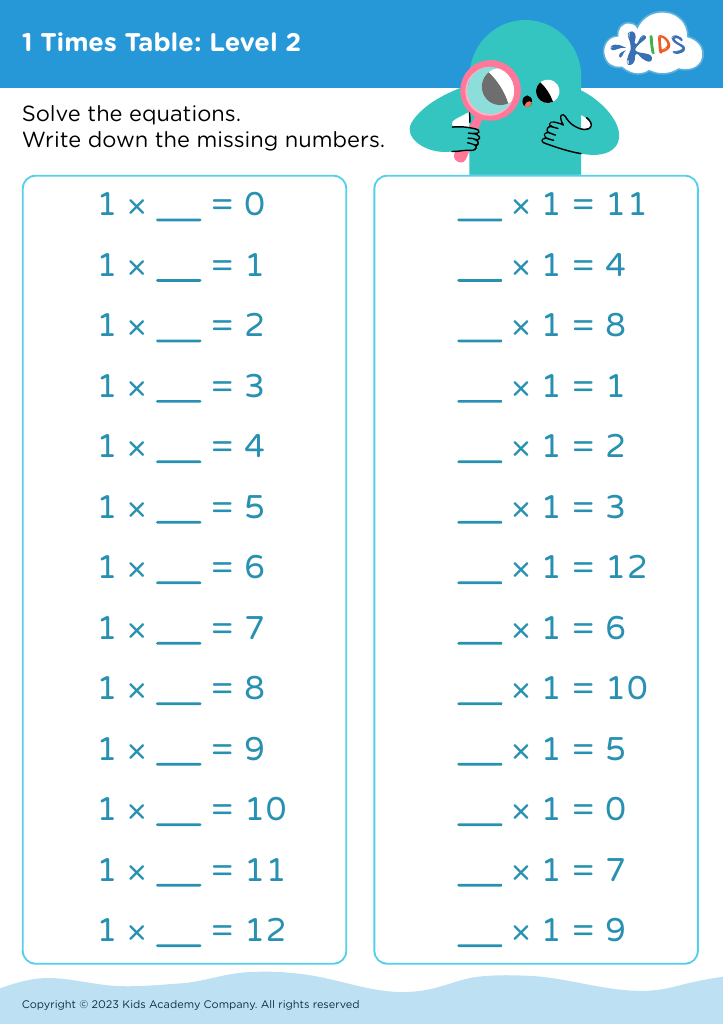



.jpg)














